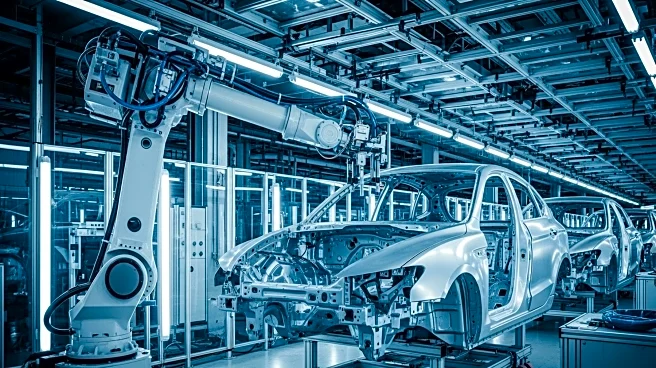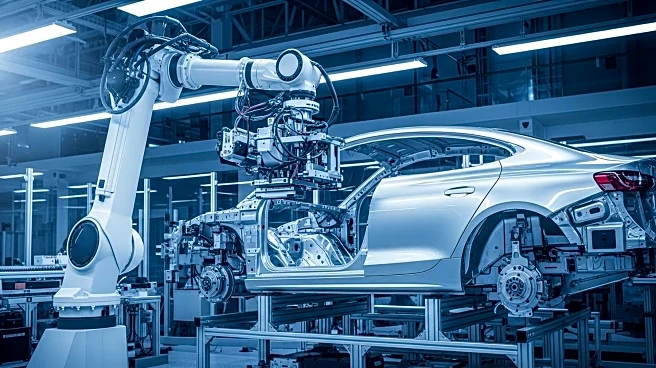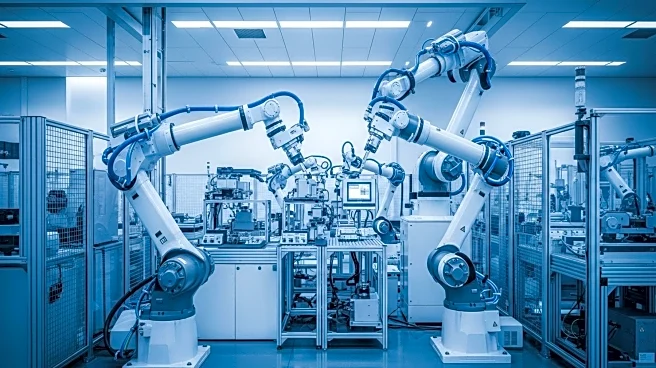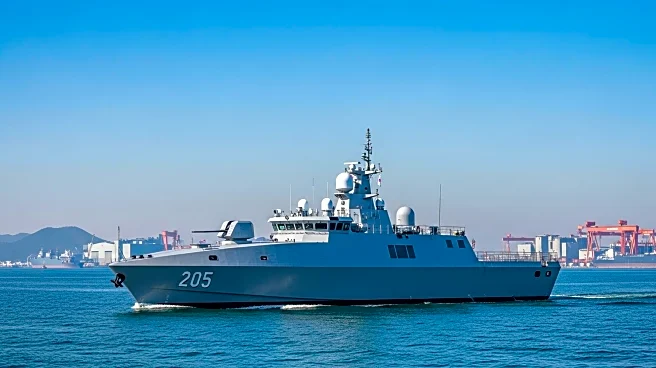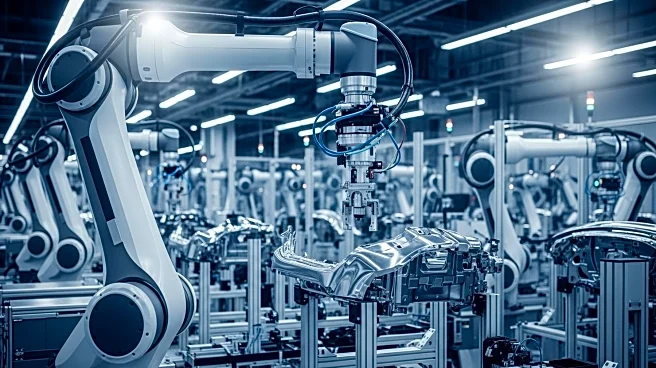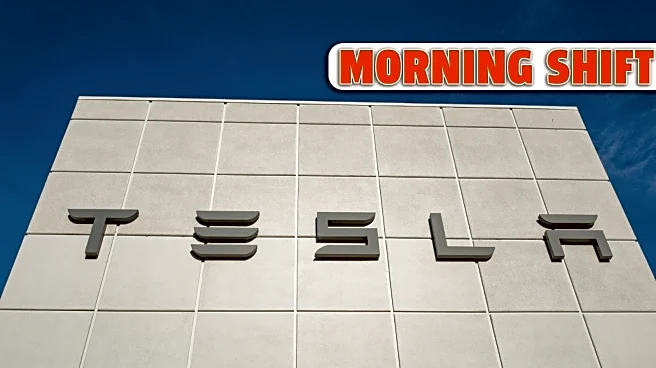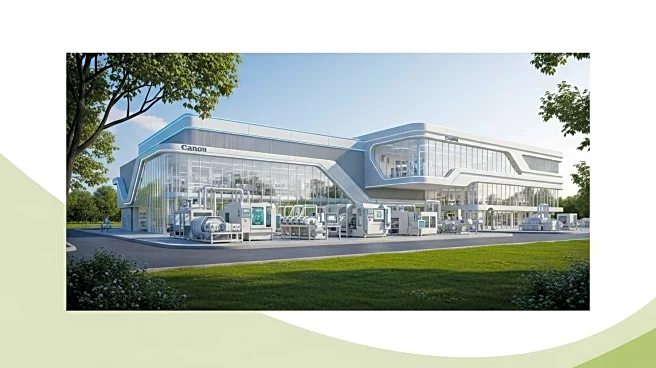What's Happening?
Hyundai Motor Group has announced a substantial increase in its investment in the United States, raising the total to $26 billion. This investment, planned between 2025 and 2028, aims to expand Hyundai's footprint in the U.S. market. The additional $5 billion investment builds on a previous $21 billion allocation announced in March 2025. Key initiatives include the establishment of a new steel mill in Louisiana to support strategic U.S. industries, expansion of U.S. auto production capacity by Hyundai Motor Company and Kia Corporation, and the creation of a robotics innovation hub with an annual capacity of 30,000 units. These efforts are expected to create approximately 25,000 new direct jobs in the U.S. over the next four years.
Why It's Important?
Hyundai's increased investment underscores its commitment to the U.S. economy, promising significant job creation and industrial growth. The new steel mill and expanded auto production capacity will strengthen local supply chains and enhance industrial resilience. The robotics hub positions Hyundai at the forefront of the global robotics ecosystem, potentially driving innovation and technological advancement. This investment aligns with Hyundai's long-term strategy to be a trusted partner in the U.S., contributing to economic vitality and sustainable growth.
What's Next?
Hyundai's initiatives will likely lead to increased collaboration with American companies in future technologies, including AI, robotics, and autonomous driving. The expansion of manufacturing facilities and technology commercialization efforts may attract further investments and partnerships, enhancing Hyundai's role in the U.S. market. Stakeholders, including local governments and industry leaders, may respond positively to the job creation and economic benefits.
Beyond the Headlines
Hyundai's investment reflects broader trends in global manufacturing and technology integration. The focus on robotics and autonomous driving highlights the shift towards automation and smart technologies in industrial processes. This development may influence other international companies to increase their U.S. investments, fostering a competitive and innovative business environment.
